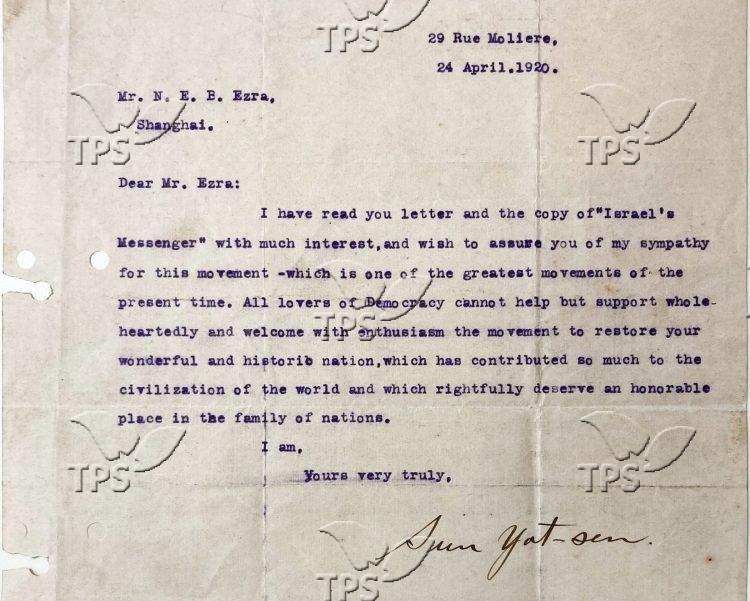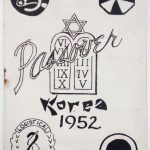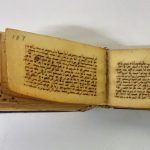Lost Letter Supporting Zionism from ‘Father of the Chinese Nation’ Surfaces
Jerusalem, 10 February, 2021 (TPS) -- A century-old letter in which Dr. Sun Yat-sen, the pre-Communist era Chinese leader, expresses his strong support for Zionism has recently surfaced at the National Library of Israel (NLI) in Jerusalem and is now online for the first time.
In the letter, the leader venerated until today as the father of the Chinese nation, calls Zionism “one of the greatest movements of the present time,” and that “all lovers of democracy cannot help but support whole-heartedly and welcome with enthusiasm the movement to restore your wonderful and historic nation, which has contributed so much to the civilization of the world and which rightfully deserve [sic] an honorable place in the family of nations”
The message, dated April 24, 1920, was sent to N.E.B. Ezra, founder of the Shanghai Zionist Association.
Dr. Sun Yat-sen served as the first provisional president of the Republic of China, established in 1912, following the fall of the last imperial dynasty, and prior to the Chinese Civil War and Communist Revolution.
While his support of Zionism is well-documented and the letter’s text was previously known, the original signed copy has only now been rediscovered, over a century after it was written.
Born in Lahore in modern-day Pakistan, the letter’s recipient, N.E.B. Ezra, was a Jewish scholar, writer, publisher and activist who lived most of his life in Shanghai.
In addition to founding the Shanghai Zionist Association, he edited its mouthpiece, Israel’s Messenger, for decades.
Professor Gao Bei, an expert on Shanghai’s 20th-century Jewish community, said that “it is very exciting that this original letter from Sun Yat-sen to N.E.B. Ezra has been unearthed. It is one of the seminal documents that illuminate the Chinese Nationalist government’s early support for the Zionist cause.”
Dr. Sun Yat-sen and other members of the Chinese leadership had warm relations with local and international Jewish communities and figures, many of them cultivated during years of exile prior to the ultimate fall of the Qing dynasty.
Their support of the Zionist movement stemmed from both ideological and practical considerations.
The letter recently surfaced as part of a major NLI initiative, supported by the Leir Foundation, to review and describe millions of items in its archival collections, including personal papers, photographs, and documents from many of the 20th century’s most prominent figures.
The initiative is part of the Library’s current renewal, which includes next year’s opening of a new campus adjacent to the Knesset in Jerusalem.







